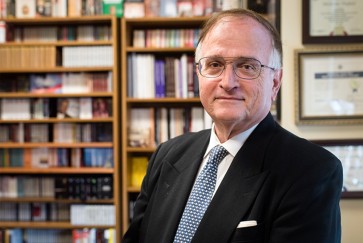The Pew Charitable Trusts have named Northwestern University synthetic biologist Arthur Prindle a 2019 Pew Scholar in the Biomedical Sciences.
As a Pew Scholar, Prindle will invest his funding into studying the signals that prompt bacteria to leave their protective communities and strike out on their own. By better understanding bacterial migration, Prindle hopes his work will lead to the development of novel treatments for antibiotic-resistant infections.
Prindle, an assistant professor of biochemistry and molecular genetics in the Feinberg School of Medicine and a member of Northwestern’s Center for Synthetic Biology, is one of just 22 Pew Scholars named nationwide this year.
Pew Scholars are selected for outstanding promise in science relevant to the advancement in human health. Each receives $300,000 over four years to pursue research without restriction. The competitive program enables early-career scientists in medicine or the biomedical sciences to take calculated risks, expand their research and explore unanticipated leads.
“One of the amazing aspects of this award is the freedom provided by the foundation,” Prindle said. “My lab has the freedom to explore new directions of research that might be considered too risky or preliminary by other funding agencies.”
Prindle, who joined Northwestern in 2017, works at the intersection of engineering, genetics and human health. His laboratory aims to understand and engineer collective behaviors in communities of bacteria and to uncover how bacteria communicate through cell-to-cell physical signaling. Prindle hopes that meetings with other Pew awardees will result in ideas and collaborations to create new design rules for microbial community assembly.
“Despite lacking many of the sophisticated signaling mechanisms of higher eukaryotes, a community of unicellular organisms can orchestrate surprisingly complex dynamic behaviors through collective regulation,” Prindle said. “It is fascinating to think about how the seemingly out-of-reach features of ‘higher organisms’ may have been stumbled upon in early evolution by these communities of ‘lowly’ bacteria. By revealing these surprising functions, we are poised to challenge the traditional view of unicellular bacteria and forever change the way we think about how bacterial communities function.”
Prindle’s previous awards include a Hippocratic Cancer Research Foundation Scholar Award, Army Research Office Young Investigator Award, David and Lucile Packard Fellowship for Science and Engineering, Simons Foundation Fellowship and others. He also is a member of the Robert H. Lurie Comprehensive Cancer Center at Northwestern University and the Chemistry of Life Processes Institute.

